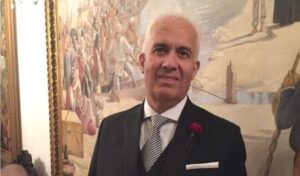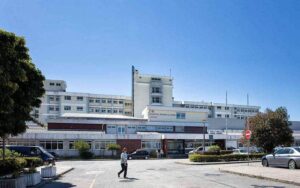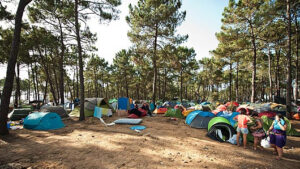… and not accepting new Russian clients
Irrespective of whether or not Russians appear on the list of EU sanctions – brought in as a result of the Russian invasion of Ukraine – banks in Portugal are closing accounts held by Russian clients, and refusing to accept new Russian business.
This is the message conveyed last night by CNN Portugal, albeit the Bank of Portugal has stressed that there is no ‘generalised prohibition’ against people of Russian nationality nor indeed against legalised Russians resident in Portugal.
This hasn’t stopped ‘hiccups’ along the way however – and a ‘very strange coincidence’.
Last month, for instance, the Bank of Portugal announced that it had frozen the ‘only bank account held in Portugal by a Russian on the EU list of sanctions’.
The account held the princely sum of €242 – an amount that wouldn’t even rate being described as ‘peanuts’ in terms of the wealth of so-called oligarchs said to be on the EU blacklist.
A few days before, a 66-year-old Russian singer identified only as Sasha – resident in Portugal for the last 30 years, and part of the chorus of a theatre in Lisbon – was out shopping with his wife when he suddenly realised there was something wrong with his bank card.
“It simply didn’t work”, explains Expresso.
The couple went to a branch of their bank – BPI – to find out what was wrong, and was informed that the account had been frozen.
“Nothing serious has ever happened to me”, Sasha told Expresso. “I have never stolen from anybody; I have never had problems with the police. I am well integrated here…”
Yet suddenly he was “unable to make payments, unable to withdraw money or even pay fines”, says the paper.
Sasha’s wife Sabine and stepdaughter were described as ‘outraged’.
“I was more calm”, he admitted.
The stepdaughter took to Facebook to denounce what she described as a witch hunt against Russian citizens in Portugal.
“I was scared”, she told the paper. “It was an unjust, unnecessary measure. He is not and never has been an oligarch. This was a mistake made by the bank…”
And sure enough it was.
Within a day – admittedly after Sabine had made an official complaint to the bank, and written to the High Commission for Migrations – the couple received a call from their account manager to say they could use their account as normal again.
Sasha was happy and says he “guards no rancour… If they had frozen the account for a week or two weeks, that would have been different”, he told Expresso. “But it was only for a day. I am an old client of theirs. They know me well. I don’t want to make a noise”.
It was a few days later that Portuguese authorities came out with the almost laughable announcement that they had frozen the only bank account connected to a Russian oligarch on the EU sanctions list, containing €242.
“€242 was precisely the value of Sasha’s account”, Sabine explains.
“He lives from his work. I don’t know if they confused him with someone else, or if this was all a great coincidence…”
The bank has refused to comment either way, explaining that it does not give statements “on the banking relations of concrete people, whether or not they are clients of the bank”.
The Bank of Portugal has come up with the anodyne statement that “execution by financial authorities of sanctions translating into the freezing of bank accounts of people or entities on the lists published by the United Nations and the European Union does not stay in force for only one day, for which reason the situation described will not have been related to such sanctions”.
Dozens of Russians in financial straits… and worse
Anna Pogrebtsova, president of the Russa Pushkin Assocation, says dozens of Russians living in Portugal have been unduly targeted as a result of the ‘sanctions blacklist’.
She told CNN Portugal that she knows of THREE cases where Russian citizens have had their bank accounts closed, with no justifications given.
She is also aware of long-term Russian residents finding themselves unable to open new accounts.
These are all people who have no connections whatsoever with the official list of ‘sanctioned oligarchs’ (other than the fact that they are Russian).
“They have done nothing wrong”, Anna Pogrebtsova told CNN. But they are nonetheless wary of ‘complaining’ in case this sees them in even greater trouble with authorities. Thus she, as president of the Russa Pushkin Association, is fighting the unfairness for them.
Anna Pogrebtsova explained that “since the beginning of the war in Ukraine, Russians in Portugal have been the target of some persecution. Principally over social media. Also by way of threatening telephone calls”.
In an interview given to Público, she described bullying of Russian children in Portuguese schools and a real sense of ‘discrimination’ against the Russian community at large.




















